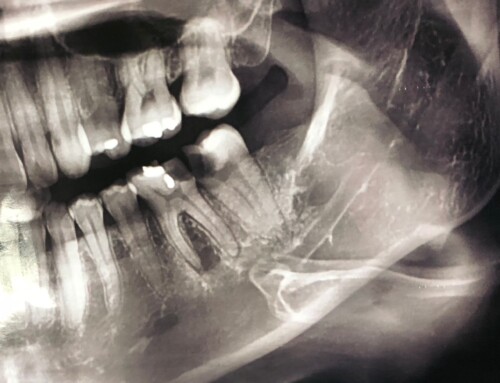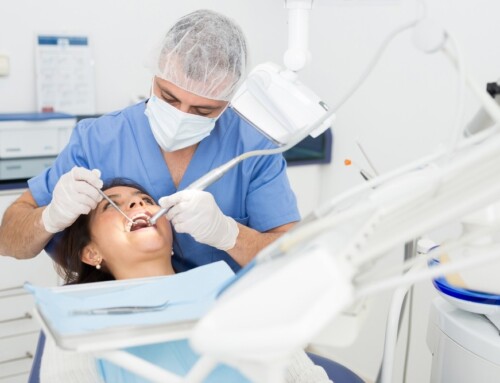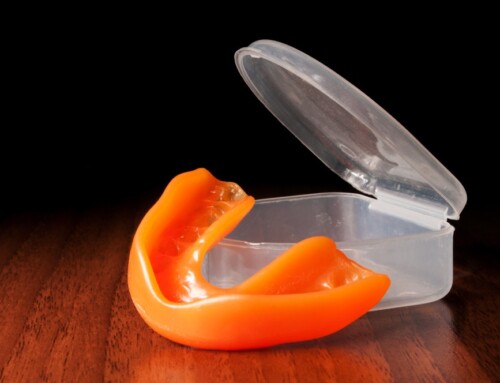Millions of people all over the U.S. suffer from occasional – or even chronic – sensitivity of the teeth. You can develop tooth sensitivity even with no major dental health issues.
Dr. Dale Brant of Ingenious Dentistry notes, “There are many things that can cause teeth to be sensitive. The first thing is decay. If the decayed area gets large enough, a tooth will become extremely sensitive. Receding gums are another cause. When the gum pulls away from the tooth, it exposes the root surface which can be very sensitive to sweets and cold liquids. Also, an individual’s bite can cause sensitivity, if a tooth hits harder than the other teeth around it, it will get traumatized and will become sensitive to hot and cold. In many people, hard clenching of the jaw and teeth grinding can cause many of their teeth to be sensitive.”
There are often small but effective changes you can make to reduce discomfort in your teeth. Since the sensitivity can come from many different sources, you may need to try several tactics to see what works best for you.
Caring for Sensitive Teeth
Some people are more likely than others to suffer from sensitive teeth. Likewise, age can make tooth discomfort and even pain more likely under a variety of circumstances. However, most cases of sensitivity can be addressed from home.
Replace Your Toothbrush
Although tooth enamel is very tough, it is not a solid mass: Instead, it’s porous. As toothbrushes get older, the soft bristles that once might have been just right for your teeth can become coarse. This can cause sensitivity that starts while brushing and persists long afterwards.
Time Your Brushing Appropriately
You already know that you should brush after every meal. Sometimes, however, it’s possible to brush too soon. Enamel can be softer than usual soon after eating, especially when food is acidic. You should wait about 30 minutes before brushing with toothpaste for sensitive teeth.
Dr. Brant says, “There are certain toothpastes that can relieve sensitivity. Fluoride gel is another product that really helps teeth that are cold sensitive.”
Avoid Sensitivity Triggers
Sometimes, people experience tooth sensitivity only when they eat certain foods. Ice cream and hot soup are common triggers. Learn what foods can bother you and avoid extreme temperatures if you can. This is often the best way to avoid unpleasant experiences with sensitive teeth.
Use Products to Remineralize Teeth
Once a cavity occurs, it’s impossible for teeth to “heal” that damage. However, weak spots in otherwise healthy enamel can be reinforced through remineralization, the process of minerals adhering to the teeth. Many toothpastes, mouthwashes and even chewing gums can help with this.
Tooth Sensitivity Getting Worse? It May Be Time to See a Dentist
Remember, although sensitivity can arise “out of nowhere,” it can also be a symptom of a much more serious problem. The best way to ensure your teeth stay strong, healthy and pain-free is to see a dentist twice a year.
Dr. Brant says, “At Ingenious Dentistry, we have treated many patients with sensitive teeth issues. If a patient has receding gums there is a procedure called the Pinhole Surgical Technique to move the gum tissue back into its proper position and this will help alleviate the sensitivity. Think of it as plastic surgery for the gum tissue.
Another helpful thing is for the patient to wear a night guard. This will take the pressure off a patient’s teeth when worn properly and it will cause the sensitivity to go away. If an individual tooth is sensitive, a simple bite adjustment may do the trick.”
Not making progress with treating your sensitive teeth at home? At Ingenious Dentistry, Dr. Brant can help you. Contact us today to learn more.







